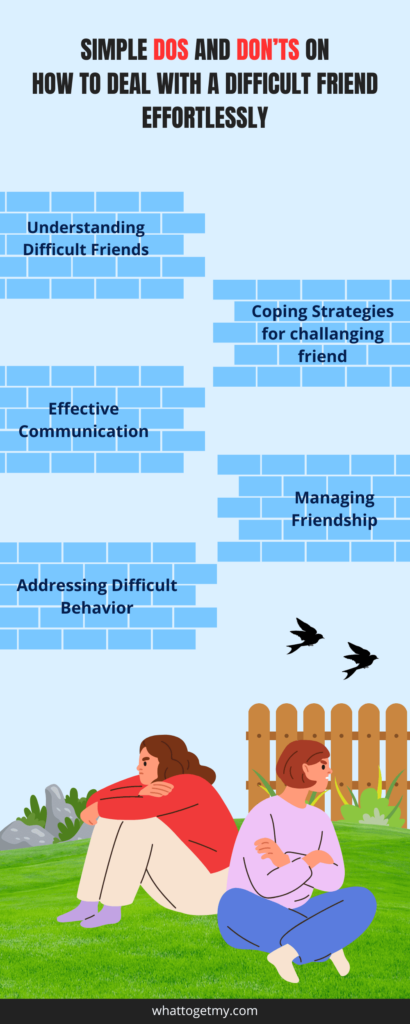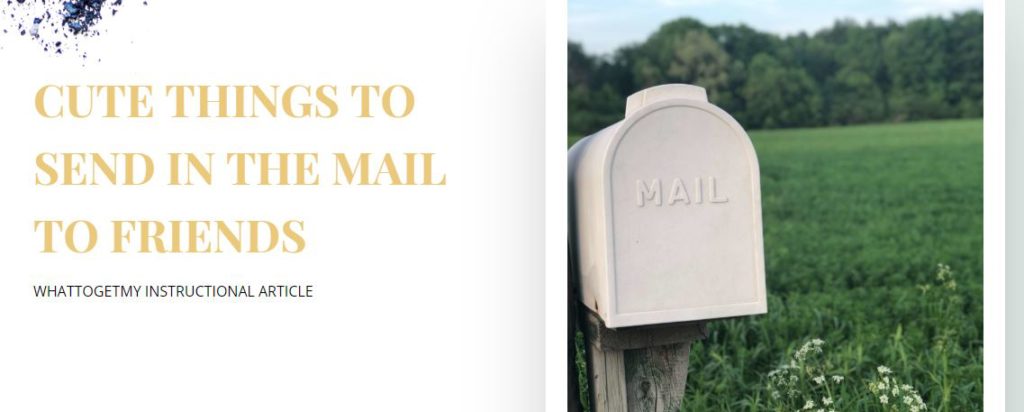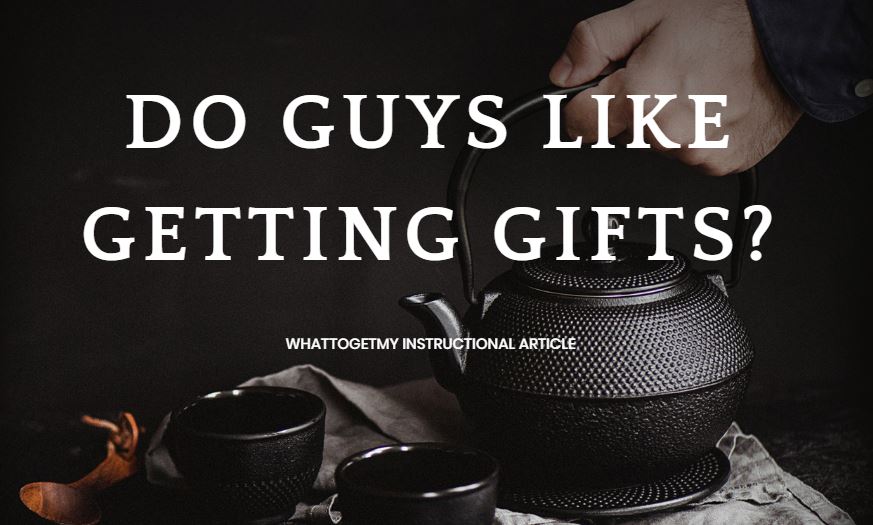7 Simple Dos and Don’ts on How to Deal with a Difficult Friend Effortlessly (2023)
Friendships are essential to our lives, but occasionally we encounter challenging dynamics that require careful navigation.
By taking the time to understand your difficult friend’s perspective, you can approach the situation with empathy and compassion.
Navigating challenging friendships can be emotionally draining, but implementing coping strategies can help you maintain your well-being and manage these relationships effectively.
Practicing self-care is another vital coping mechanism. Prioritize activities that promote your physical, mental, and emotional well-being.
The first step in resolving conflicts is to identify the root causes.
Friendships are essential to our lives, but occasionally we encounter challenging dynamics that require careful navigation. Coping with difficult friends can be challenging, demanding understanding, patience, and practical strategies. We will explore how to deal with a difficult friend and offer you various techniques for handling problematic friendships and maintaining healthy dynamics. Whether you’re facing toxic behavior, conflicts, or the need to set boundaries, these strategies will help you navigate and improve your relationships with difficult friends.
Understanding Difficult Friends
When dealing with a difficult friend, it is crucial to comprehend the underlying factors that contribute to their behavior. Some friends may exhibit challenging traits due to personal struggles, unresolved issues, or incompatible communication styles. By showing empathy and understanding, you can approach the situation with a more compassionate mindset, fostering a more constructive approach to addressing the issues.
Dealing with a difficult friend can be challenging, but understanding the underlying factors contributing to their behavior is essential. Each person has their unique struggles and experiences that shape who they are. Some friends may exhibit challenging traits due to personal struggles they are going through, such as stress, anxiety, or unresolved issues from their past. Others may have different communication styles that clash with your own, leading to misunderstandings and conflicts.
By taking the time to understand your difficult friend’s perspective, you can approach the situation with empathy and compassion. Instead of immediately reacting to their behavior, try to put yourself in their shoes and consider what might be causing them to act in this way. This understanding can help you approach the issues with a more constructive mindset.
Remember, showing empathy does not mean condoning or accepting their problematic behavior. It means acknowledging that there may be underlying reasons for their actions. By fostering a compassionate approach, you can engage in more productive conversations and work towards finding resolutions that benefit both parties.
When dealing with a difficult friend, it’s essential to communicate openly and honestly, expressing your concerns in a non-confrontational manner. By sharing your perspective and listening to theirs, you can create a space for understanding and finding common ground. However, it’s essential to set boundaries and prioritize your well-being in the process. If the friendship becomes toxic or consistently detrimental to your emotional health, it may be necessary to reassess the relationship.
Understanding difficult friends requires empathy and a willingness to see beyond their challenging behavior. By approaching the situation with compassion, you can foster a more constructive approach to addressing the issues and potentially find a way to improve the dynamics of your friendship.
About three in ten young Italians had difficulties talking to other people, according to a survey published in 2021 by Statista, as illustrated above.
Coping Strategies for Challenging Friendships
Coping with challenging friendships requires adopting strategies that promote emotional well-being and maintain healthy boundaries. Developing coping mechanisms tailored to your specific circumstances is essential to manage these relationships effectively. This may include setting realistic expectations, practicing self-care, seeking support from others, and finding healthy outlets for stress relief. By caring for your well-being, you can approach the friendship more transparently and composed.
Navigating challenging friendships can be emotionally draining, but implementing coping strategies can help you maintain your well-being and manage these relationships effectively. Coping mechanisms are personal strategies that allow you to navigate difficult situations and emotions with resilience and self-care.
One crucial coping strategy is to set realistic expectations for the friendship. Recognize that only some friends will meet all your needs or share the same level of commitment. Adjusting your expectations can help you avoid disappointment and frustration, allowing you to appreciate the positive aspects of the friendship.
Practicing self-care is another vital coping mechanism. Prioritize activities that promote your physical, mental, and emotional well-being. Engage in activities you enjoy, such as exercising, practicing mindfulness or meditation, pursuing hobbies, or spending time with loved ones. Taking care of yourself allows you to recharge and approach friendship challenges more precisely and composedly.
Seeking support from others is also crucial in coping with challenging friendships. Contact trusted friends, family members, or even therapists or counselors who can provide guidance and a listening ear. Sharing your experiences and concerns with others can offer valuable perspectives and emotional support.
Finding healthy outlets for stress relief is another effective coping strategy. Engage in activities that help release tension and channel your emotions. These outlets provide a healthy way of expressing emotions and distract from friendship challenges.
Lastly, maintaining healthy boundaries is essential when coping with challenging friendships. Clearly define acceptable and unacceptable behavior in the relationship, and communicate your boundaries assertively yet respectfully. Setting boundaries ensures that your well-being is protected and helps establish a healthier dynamic within the friendship.
Coping with challenging friendships requires personalized strategies that promote emotional well-being and maintain healthy boundaries. By setting realistic expectations, practicing self-care, seeking support, finding healthy outlets for stress relief, and establishing clear boundaries, you can navigate these relationships with greater resilience and maintain your well-being. Remember, it’s crucial to prioritize your happiness and surround yourself with positive influences.
Effective Communication Techniques
Communication is critical in resolving conflicts and addressing issues with difficult friends. Effective communication strategies can foster open and honest dialogue, build trust, establish a foundation for resolving conflicts, and improve friendship. Active listening, using “I” statements to express your feelings, and employing empathy and understanding are all essential components of effective communication.
Effective communication is vital when dealing with difficult friends as it paves the way for understanding, resolution, and growth within the friendship. By utilizing effective communication techniques, you can foster open and honest dialogue, establish trust, and constructively address issues.
Active listening is a fundamental aspect of effective communication. It involves giving your full attention to your friend and genuinely seeking to understand their perspective. Show interest by maintaining eye contact, nodding, and providing verbal and non-verbal cues that indicate you are engaged in the conversation. Refrain from interrupting or formulating your response before they have finished speaking. By actively listening, you create a safe space for your friend to express themselves and feel heard.
Using “I” statements is another powerful communication technique. When expressing your feelings or concerns, framing your statements with “I” can help avoid sounding accusatory or placing blame. For example, instead of saying, “You always cancel plans at the last minute,” you can say, “I feel disappointed when plans are canceled at the last minute.” This approach focuses on your emotions and experiences, facilitating a more constructive and non-confrontational conversation.
Empathy and understanding are essential components of effective communication. Put yourself in your friend’s shoes and try to see things from their perspective. This doesn’t mean you have to agree with everything they say or do, but it allows you to approach the conversation with empathy and compassion. Validate their feelings and acknowledge their point of view, even if you have differing opinions. By showing understanding, you create an environment that encourages open dialogue and mutual by showing understanding respect.
Non-verbal communication plays a significant role in effective communication. Pay attention to your body language, facial expressions, and tone of voice. Maintain an open and relaxed posture, use appropriate gestures, and speak calmly and respectfully. Non-verbal cues can reinforce sincerity and authenticity.
In a nutshell, effective communication is crucial for addressing issues and resolving conflicts with difficult friends. You can create an environment of trust and openness by practicing active listening, using “I” statements, employing empathy and understanding, and being mindful of non-verbal communication. Remember, effective communication is a skill that can be developed and honed over time, and it is a valuable tool for building and nurturing healthy friendships.

Resolving Conflicts and Managing Problematic Friendships
In challenging friendships, conflicts and problematic behaviors may arise. It is crucial to approach the situation with a problem-solving mindset to resolve issues with troublesome friends. Identifying the root causes of the conflict and finding mutually agreeable solutions is essential. Sometimes, seeking mediation or involving a neutral third party can help facilitate constructive discussions. When facing toxic friendships, assertively addressing the issue, setting boundaries, and being prepared to reassess the friendship for your well-being may be necessary.
Resolving conflicts and managing problematic friendships are crucial to maintaining healthy and fulfilling relationships. When faced with difficulties in a friendship, it is crucial to approach the situation with a problem-solving mindset and a willingness to find resolutions.
The first step in resolving conflicts is to identify the root causes. Take time to reflect on the specific issues causing tension or discomfort in the friendship. This may involve examining your feelings and behaviors and considering your friend’s perspective. By understanding the underlying factors contributing to the conflict, you can approach the situation with greater empathy and clarity.
Once you have identified the core issues, it is essential to find mutually agreeable solutions. This may involve open and honest communication with your friend, expressing your concerns, and listening to their perspective. Strive for a constructive dialogue where both parties feel heard and respected. Focus on finding common ground and exploring compromises that satisfy both individuals’ needs.
Sometimes, seeking mediation or involving a neutral third party can be beneficial. Mediators can facilitate discussions, provide guidance, and offer an objective perspective. They can help navigate complex emotions and facilitate a fair and satisfactory resolution for everyone involved. Consider contacting a trusted friend, counselor, or mediator who can assist.
When dealing with toxic friendships where your friend’s behavior consistently crosses boundaries or negatively impacts your well-being, assertively addressing the issue becomes necessary. Setting clear and firm boundaries is essential to protect your emotional health and maintain self-respect. Communicate your boundaries to your friend calmly and assertively, expressing how their behavior affects you and what you need to maintain a healthy friendship.
Sometimes, it may be necessary to reassess the friendship and consider whether it is worth continuing. Remember that your well-being is essential, and it is okay to distance yourself from toxic relationships that do not bring positivity into your life. Surround yourself with supportive and nurturing friendships that contribute to your happiness and personal growth.
In conclusion, resolving conflicts and managing problematic friendships require proactive and open-minded approaches. By identifying the root causes, seeking mutually agreeable solutions, utilizing mediation if necessary, setting boundaries, and making choices prioritizing your well-being, you can navigate challenging friendships with care and maintain healthy relationships.
Maintaining Healthy Boundaries and Addressing Difficult Behavior
Maintaining healthy boundaries is crucial when dealing with difficult friends. Communicating your needs and expectations and consistently enforcing those boundaries helps protect your emotional well-being. Strategies for handling difficult friends include assertively expressing your concerns, setting limits, and encouraging respectful communication. Remember, setting boundaries is not a sign of disrespect but a way to prioritize your well-being within the friendship.
Maintaining healthy boundaries is essential in all relationships, including friendships. When managing problematic friendships, it becomes even more critical to establish and enforce these boundaries to protect your emotional well-being and maintain a healthy dynamic.
When maintaining healthy boundaries in friendships, clearly communicating your needs and expectations to your friend is crucial. Let them know what is acceptable and what is not in the friendship. Be assertive but respectful in expressing your boundaries, ensuring your voice is heard, and your feelings are acknowledged.
Consistency is vital when enforcing boundaries. Stand firm in upholding your boundaries, even if they are challenging or uncomfortable. This sends a clear message to your friend about your expectations and reinforces the importance of respecting your boundaries.
Addressing challenging behavior in friends requires assertiveness and effective communication. If your friend’s behavior is causing you distress or discomfort, it is crucial to address the issue directly. Choose an appropriate time and place to have an open and honest conversation with your friend. Use “I” statements to express how their behavior impacts you, focusing on your feelings rather than making accusatory statements.
Setting limits is another strategy for addressing challenging behavior. Communicate the consequences or actions you will take if your friend continues to exhibit problematic behavior. This may involve reducing the time spent together, taking a break from the friendship, or even ending the friendship if necessary.
Encourage respectful communication within the friendship. Emphasize the importance of open dialogue, active listening, and empathy. Encourage your friend to express their feelings and concerns while maintaining mutual respect and understanding.
It is important to remember that setting boundaries is not a sign of disrespect or a reflection of your value on the friendship. It is a necessary step to protect your well-being and ensure a healthy and balanced relationship. Boundaries allow you to maintain your identity, prioritize your needs, and foster a friendship built on mutual respect and understanding.
Maintaining healthy boundaries and addressing problematic behavior in friendships are essential for nurturing positive and fulfilling relationships. By clearly communicating your boundaries, enforcing them consistently, addressing issues assertively and respectfully, and promoting open and respectful communication, you can create a friendship dynamic that respects your well-being and supports your personal growth.
Tips for Navigating Challenging Friendships
Navigating challenging friendships requires patience, understanding, and resilience. Here are some tips for handling difficult friends effectively:
1. Focus on empathy and understanding to gain insight into your friend’s behavior.
2. Practice active listening to enhance communication and foster a sense of validation.
3. Set realistic expectations to avoid disappointment and frustration.
4. Prioritize self-care to maintain your emotional well-being.
5. Seek support from other friends or trusted confidants who can offer guidance and perspective.
6. To navigate complex relationship dynamics, seek professional help, such as therapy or counseling.
Dealing with Friendship Conflicts
Conflict is a normal part of any relationship, including friendships. When dealing with friendship conflicts, it is vital to approach them with empathy and a willingness to find common ground. Open and honest communication, active listening, and a problem-solving mindset are crucial in resolving conflicts and strengthening friendships.
Friendship conflicts can arise for various reasons, and addressing them constructively is essential to preserve the relationship. When faced with a friendship conflict, it’s essential to approach the situation with empathy and understanding. Recognize that you and your friend may have different perspectives and emotions tied to the conflict.
Open and honest communication is critical in resolving friendship conflicts. Take the time to express your feelings and concerns while listening attentively to your friend’s point of view. Use “I” statements to avoid sounding accusatory and create a safe space for dialogue. By actively listening to each other, you can better understand the underlying issues and work towards finding common ground.
A problem-solving mindset is crucial in resolving conflicts. Rather than focusing on blame or winning an argument, shift your focus to finding mutually agreeable solutions. Brainstorm together and explore different options that address the concerns of both parties. Be willing to make compromises and be open to new perspectives. Remember, the goal is to strengthen the friendship and find a resolution that benefits both sides.
It’s vital to approach friendship conflicts as an opportunity for growth and understanding. Use the conflict to learn more about each other’s boundaries, needs, and expectations. Effective communication and a problem-solving mindset can deepen the connection and create a stronger foundation for your friendship.
However, it’s worth noting that not all conflicts can be resolved, and some friendships may naturally end. Suppose the conflict persists or the friendship becomes toxic or harmful. In that case, it may be necessary to reevaluate the relationship and consider whether it is healthy and beneficial for both parties.
Dealing with friendship conflicts requires empathy, open communication, active listening, and a problem-solving mindset. By approaching conflicts with understanding and a willingness to find common ground, you can navigate through challenges, strengthen the friendship, and create a healthier and more fulfilling bond.
Frequently Asked Questions
Q1: How do I address challenging behavior in a friend without damaging the friendship?
A1: When addressing problematic behavior in a friend, it’s essential to approach the conversation with empathy and understanding. Choose an appropriate time and place to talk, and use “I” statements to express your concerns without sounding accusatory. Focus on specific behaviors rather than attacking their character. You can address the behavior while preserving the relationship by maintaining open communication and emphasizing your care for the friendship.
Q2: What can I do if my friend consistently disrespects my boundaries?
A2: If your friend consistently disrespects your boundaries, it’s essential to communicate your needs assertively. Clearly express your boundaries and the consequences for crossing them. Be prepared to enforce those boundaries by following through with the consequences if necessary. It may also be helpful to reassess the friendship and consider whether the behavior aligns with your values and overall well-being.
Q3: How can I handle a friend who is constantly negative or draining to be around?
A3: Dealing with a friend who is constantly negative or draining can be challenging. It’s essential to prioritize your well-being in such situations. Set limits on how much time you spend with them and create a balance between supporting them and taking care of yourself. Encourage positive conversations and suggest engaging in activities that promote a more uplifting atmosphere. If the negativity persists and affects your mental health, it may be necessary to reevaluate the friendship and consider whether it is healthy for you to continue the relationship.
Conclusion
To summarize, managing complicated friendships requires understanding, effective communication, boundary setting, and resilience. You can navigate these relationships more effectively by utilizing the strategies outlined in this article for handling challenging friends. Remember, every friendship is unique, and it’s vital to assess your situation and choose the strategies that best suit your circumstances. With patience, compassion, and the right mindset, you can improve the dynamics of your friendship and foster healthier, more fulfilling relationships.



